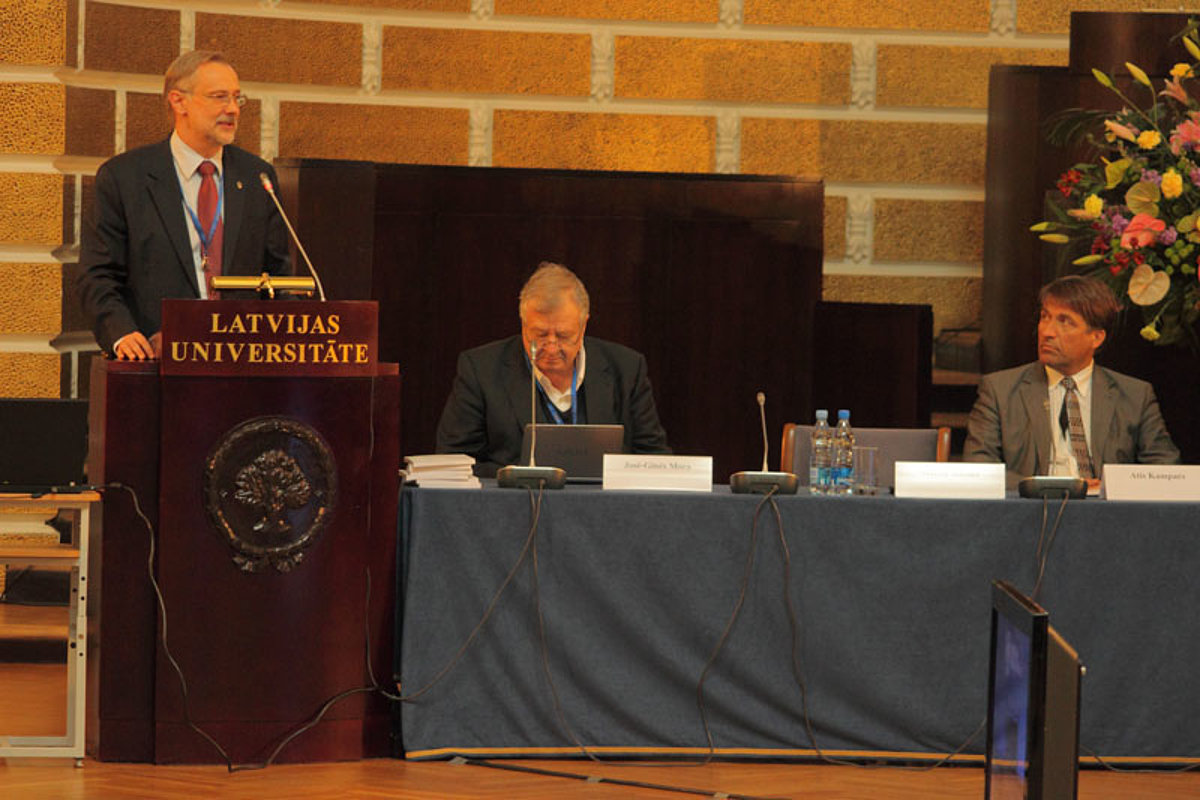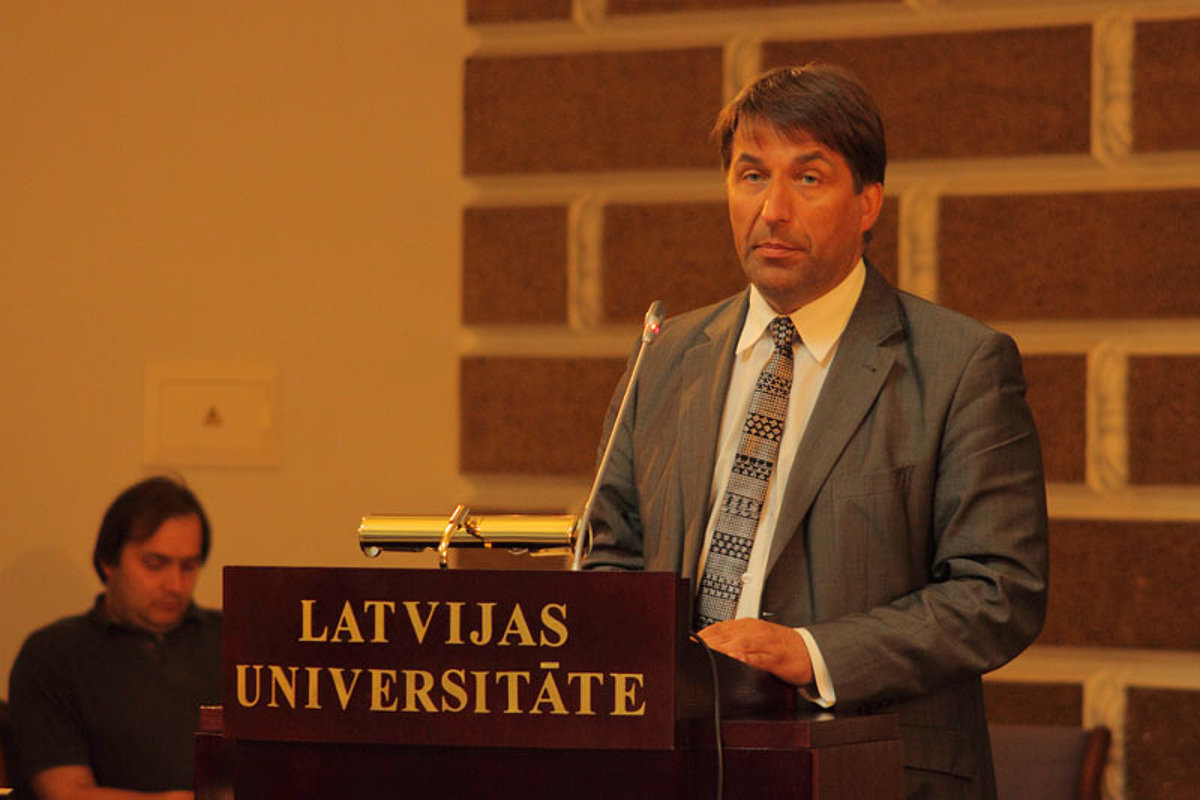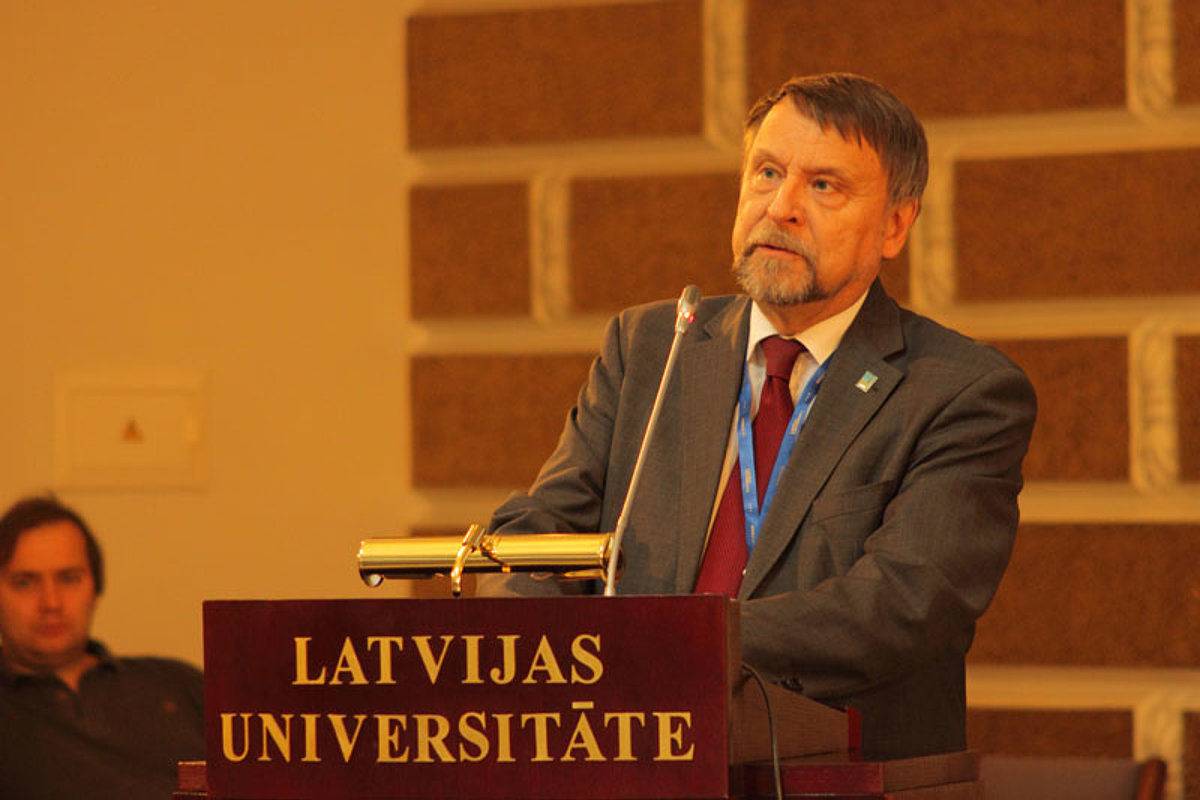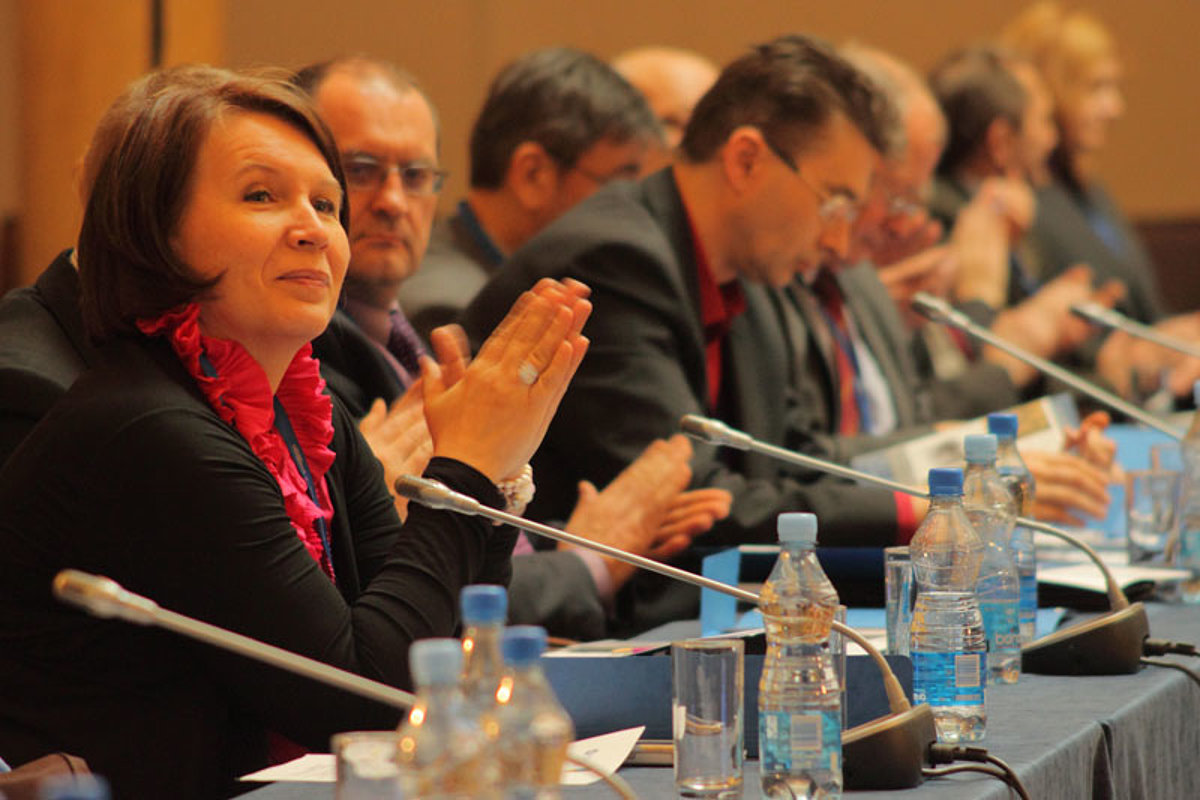
Search for Effectiveness
“The cooperation between entrepreneurs and universities is a topical issue. The management of universities is in a transition period all around Europe, also Latvia. The European countries share common discussion topics and problems related to this context. This meeting is a great opportunity for sharing experience and looking for new solutions to practical issues, as well as finding a new way to make this cooperation more efficient,” emphasized the UL Rector Marcis Auzins in his greeting speech.
These questions are being actively solved also by our neighbour countries – Lithuania and Estonia. Like in any other country, also in Latvia economic growth depends on the stimulation of research and innovation. This was repeatedly emphasized during the opening of the seminar by Artis Kampars, the Minister of Economics of the Republic of Latvia, reminding that there is a need for a long-term cooperation between entrepreneurs and educational institutions. He stated that it is necessary to fully apply acquired knowledge and share experience to improve students’ career opportunities in the labour market. “As a result of this cooperation between entrepreneurs and researchers, innovative ideas should turn into new products that comply with the needs of the users,” added Artis Kampars.
As an example of cooperation between entrepreneurs and educational institutions, the Minister of Economics mentioned the state support program of Competence Centres, aimed at enhancing cooperation between scientists and entrepreneurs and boosting the competitiveness of entrepreneurs, stimulating cooperation between research and industrial sectors in industrial research and in projects of new product and technology development.
“Nowadays, when everybody seems to be European-minded both in their way of thinking and behaviour, it can be concluded that it is still necessary to create a rational cooperation model within the Baltic Sea Region,” admits the current BSRUN (The Baltic Sea Region University Network) President Kari Hyppönen, mentioning the significance of building up new contacts, as well as the fact that the cooperation network is constantly expanding.
Opportunities Are Not Fully Exploited
Presently, the capacity of the states and their entrepreneurs and universities is not sufficient in order to utilize financial resources available through various support funds for regional activities. This problem was outlined by John Goddard, the emeritus Professor of Urban and Regional Development Studies at the Newcastle University of the United Kingdom, in his opening speech The Role of Universities in the Urban and Regional Development.
To his mind, it is essential to evaluate the most appropriate fields of specialization of each region, as well as to learn from others’ experience and use the best regional development practices, adapting them to the local needs.
“In order to realize a successful mutual cooperation, it is necessary to develop a unified understanding of the common interests of regions, cities and universities. The motivation of universities and regions should be defined, as well as the obstacles to cooperation and the ways how to unify power and increase capacity,” said J. Goddard, listing education compliance with labour market demands, knowledge utilization to develop innovations, academic education and globally-recognized research as fundamental criteria for successful functioning of universities in a global environment. Whereas regional representatives must evaluate the accessibility of national funding, local support, involvement of local society and how regional development will yield extra profit to local entrepreneurs, as well as what will be the indirect benefits of cooperation.
According to nowadays context, Professor sees a university as an opportunity to popularize a definite country on a global scale, developing not only its education and research institution, but also creating an image of this country or region.
“Universities are like doors to creating a marketing message of cities and regions in the world,” emphasizes J. Goddard. “Innovations are not only new products, but also new services, new business models and organization forms in different fields of economics.”
To create a stable link between entrepreneurs and universities, both sides should be confident of their partner’s intentions, and both have to agree upon their goals and forms of cooperation. Nevertheless, universities should have intellectual leadership in their definite region, the cooperation between entrepreneurs and universities should concentrate on the particularity of the region and possible advantages when competing with other regions and universities.
“Universities are the most essential drivers to regional development, including education, research and innovation,” said Mareks Gruskevics, the State Secretary of the Ministry of Education and Science, highlighting guidelines for the Europe 2020 economic strategies, which comprise innovation alliances, youth movements and ideas of new skills and crafts.
Besides, Latvia presently not only encounters the consequences of crisis and insufficient private investments, but also a decrease in student enrolment due to demographic factors. To create a long-term cooperation, Latvian entrepreneurs and educational institutions should focus on the following fields – medicine, chemistry, information technologies, engineering, European studies and international relations.
Approaches May Differ
Other challenges to create a successful cooperation involve internal policy differences between states, as regards the management of financial resources, the organizational structure and the regulation of cooperation forms.
By evaluating and searching potential cooperation partners, José-Ginés Mora, Professor at the University of London, the UK, and representative of the Education Institute, suggests evaluating universities according to the following successful cooperation factors – flexibility of the cooperation partner, reliability, leadership, innovations, benefits, initiative, etc., thus being able to characterize cooperation partners and define their functions.
Approaches to building cooperation may differ, taking into account the economic, cultural and historical context of the states and, particularly, regions, the guidelines for internal and international policies, individuals participating in cooperation projects, as well as institutional and disciplinary culture. In conclusion, J.G. Mora said that the cooperation between entrepreneurs and universities is not only a way how to get extra financial resources, but also a way how to improve study quality and prepare professionals in compliance with labour market demands.
Together sixty participants from eight countries will participate at the seminar held on May 5 and May 6 at the University of Latvia. The following themes are to be covered – cooperation and support to ensure mutual profitability, higher education modernization and investment in regional development, gateway to third generation universities: cooperation of universities and industries in Finland, regional project as an instrument of stimulating business cooperation, cooperation between universities and entrepreneurship from the business perspective and other themes. The Baltic Sea Region University Network (BSRUN) was established in 2000. Currently, there are thirty-four participant-institutions. Since July 1, 2010, the University of Latvia has become the Coordinating Body of BSRUN and is going to perform this duty for the next three years.
Translated by students of the professional study programme Translator of the University of Latvia.
Translated by students of the professional study programme Translator of the University of Latvia.

 CONFERENCE
CONFERENCE

